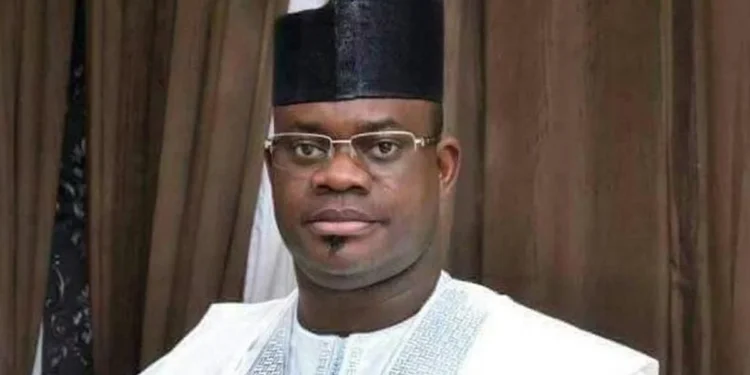Former Kogi State Governor Yahaya Bello has requested the Federal High Court in Abuja to release his international passport, citing urgent medical needs that require treatment abroad during the court’s vacation period.
Bello, who faces money laundering charges totaling ₦80.2 billion brought by the Economic and Financial Crimes Commission, made the application through his lead counsel J.B. Daudu during Friday’s court session. The senior advocate argued that his client had not traveled internationally for eight years and needed to address specific health concerns that could not be adequately handled locally.
Daudu emphasized that seeking court permission for travel was a standard requirement under his client’s bail conditions, and submitted additional affidavits and exhibits to support the medical travel request. He noted that the application became necessary due to the timing of the required medical intervention coinciding with the court’s scheduled vacation.
The EFCC, represented by Kemi Pinheiro, strongly opposed the passport release application, describing it as incompetent and an abuse of court process. Pinheiro argued that a similar application was already pending before the FCT High Court, creating a potential conflict and suggesting deliberate forum shopping by the defense team.
Daudu countered the prosecution’s objections, asserting that it was actually the EFCC that was engaging in duplicitous legal tactics rather than the defense. The exchange highlighted the contentious nature of the ongoing legal battle between the former governor and the anti-corruption agency.
Justice Emeka Nwite reserved judgment on the passport application until July 21, while scheduling the continuation of the substantive trial for July 3 and 4. The ruling will determine whether Bello can travel abroad for medical treatment or remain restricted to Nigeria pending the resolution of his case.
During the Friday session, Zenith Bank compliance officer Mshelia Arhyel Bata appeared as the fourth prosecution witness and made significant clarifications regarding earlier allegations. Bata explicitly denied being harassed by security personnel attached to the defendant, contradicting claims previously made by the EFCC and published on the commission’s website.
Under cross-examination, Bata provided crucial testimony regarding the bank documents presented as evidence. He confirmed that Yahaya Bello’s name did not appear as a signatory or beneficiary on any of the account statements tendered by the prosecution, potentially weakening the EFCC’s case against the former governor.
The witness identified several legitimate signatories to the accounts in question, including a Permanent Secretary, Chief Accountant, and Accountant, all officially connected to the Kogi State Government House Administration during Bello’s tenure. This testimony suggested that the financial transactions may have followed proper governmental procedures rather than personal enrichment schemes.
Courtroom tensions emerged when the prosecution attempted to limit the witness’s responses, arguing that he should restrict his testimony to documents already tendered as evidence. However, Justice Nwite overruled the objection, recognizing Bata’s expertise and allowing him to provide comprehensive testimony based on his professional knowledge.
The court had previously admitted statements of accounts belonging to the Kogi State Government House Administration covering Bello’s governorship period, along with certificates of identification submitted according to established legal procedures. These documents form part of the prosecution’s evidence in the high-profile corruption case.
As the trial continues, the July 21 ruling on the medical travel application will be closely watched, as it could set precedents for how courts handle similar requests from high-profile defendants facing serious corruption charges.

















